Yes, You Should Be Wearing SPF Every Day—These Are the Products I Really Rate
Given the typically grey nature of the U.K. climate, you could be forgiven for thinking that sunscreen isn’t a daily essential. For many of us, growing up in the ‘90s meant only applying SPF on sunny days or at the beach, which has unfortunately reinforced the (false) idea that UV rays are only harmful when you can see or feel the sun. Most of us now know that this couldn’t be further from the truth. "I frequently get asked whether it is necessary to have a regular SPF in the winter or if it is cloudy,” says Anjali Mahto, consultant dermatologist at Self London. "The answer is always a loud and resounding 100 per cent yes. There is still ultraviolet radiation from the sun around in the winter when the days are shorter (albeit less) and up to 80 per cent of ultraviolet light penetrates cloud cover.”
Given that ultraviolet (UV) radiation is responsible not only for sunburn, but also is the primary cause of skin ageing, triggers inflammatory skin conditions like rosacea, can worsen hyperpigmentation, and plays a strong role in the development of skin cancer, it’s easy to see why skincare experts are so vocal about the importance of wearing sunscreen every day.
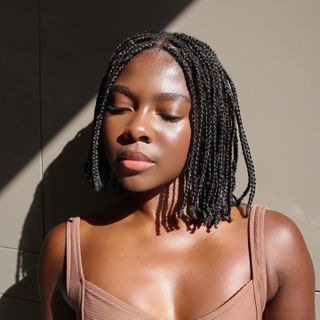
As an esthetician, I still find myself encountering clients who don’t wear sunscreen daily. The primary reasons? They don’t like the texture or they think sunscreen causes breakouts. I’ve found that many people still associate sunscreens with the thick, chalky, greasy formulas most of us grew up using. But modern innovations in sunscreen technology have allowed for impressive developments, both in the formulations and textures of SPF products. "There has definitely been an improvement in the sunscreens available as brands have realised this is a good area to invest in from a research and development perspective,” explains Mahto. "More of us are now aware of the importance of using sunscreen daily and so it’s a huge market for brands.”
The thing is, the sunscreen market really is huge now, and it can be hard to know where to start, especially if you’re fussy about the type of product you’re putting on your face—and I totally get that. Those with dry skin are going to have a totally different criteria to those with oily skin. If you have sensitivity or are acne-prone then you’re going to have that front of mind, and if you have dark skin, you’ll be on the hunt for a formula that doesn’t leave skin looking chalky or with a ghostly white cast. According to Mahto, taking a look at the formula and swatching the product are the best ways to figure out if it ticks all of the boxes for you. "Oily skin types should go for sunscreens with a matte finish and light gel or fluid textures, whereas those with dry skin can use rich creams and balms,” she explains. "My advice to patients in clinic who have skin of colour is to opt for gel-based chemical sunscreens,” she adds. "Often they are less chalky and do not leave any white marks on the skin.”
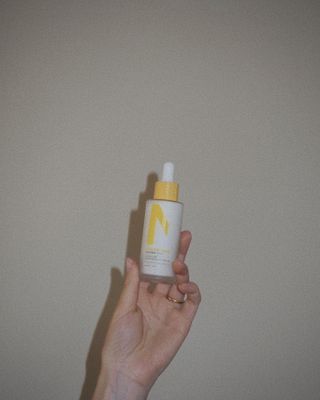
‘Chemical sunscreen’ and ‘physical sunscreen’ are two phrases that will crop up a lot if you’re doing any research into SPF products. "Physical sunscreen works by creating a physical barrier between your skin and the sun’s rays and to a lesser degree absorb UV rays,” explains Mahto. "They use physical filters such as zinc or titanium, whereas on the other hand, chemical sunscreens work by absorbing the sun’s rays.” Whether a sunscreen is physical or chemical often dictates the texture of the formula—another good reason to try before you buy. For most people this will just be down to personal preference, but if you have acne-prone or sensitive skin, Mahto advises that a physical sunscreen with titanium dioxide or zinc oxide is usually better than one with chemical filters, which can lead to irritation.
Application is also key to ensuring that you have the right amount of sun protection. "Sunscreen is the last skincare product applied before make-up, and you should use about one-half a teaspoon of product to your face and neck,” explains Mahto. "This needs to dry for three to five minutes before applying foundation,” she adds. While no area of skin is more exposed than our faces, it’s important to remember to cover often neglected areas like the tops of our ears, our lips, and the back of our neck—I always wipe off my excess sunscreen on the backs of my hands, as they’re also more exposed than most people realise.
There are hundreds of daily SPFs on the market, with more and more launching every day, but if you’re after a truly modern and innovative SPF formula, I’ve rounded up my tried and tested favourites. There are a mix of physical and chemical formulas, but one thing they all have in common is a lightweight texture and an invisible finish. If you’re looking for the best daily SPFs of 2023, keep on scrolling.
Shop the Best Daily SPFs:
1. Ultra Violette Supreme Screen Hydrating Facial Sunscreen SPF50+
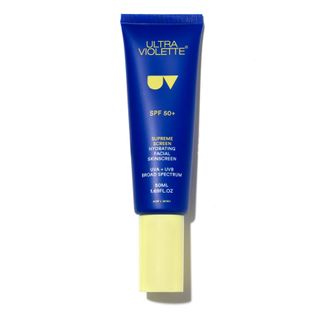
This is a really great all-rounder which works as well for oily skin as it does for dry skin. Why? Because (while the formula is supremely hydrating) the texture is lightweight and absorbs easily, rather than leaving any residue on the skin.
2. Templespa Line Defence SPF 50
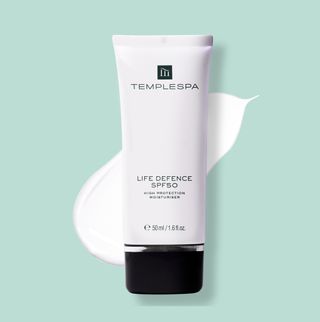
If you're after an SPF that will sit well under makeup without pilling or making skin look greasy halfway through the day, look no further. This product was created with exactly that purpose in mind. It leaves skin super soft and smooth, helps makeup to last longer, and delivers an impressive SPF 50+ protection.
3. L'Oréal Paris Bright Reveal Dark Spot UV Fluid SPF 50+
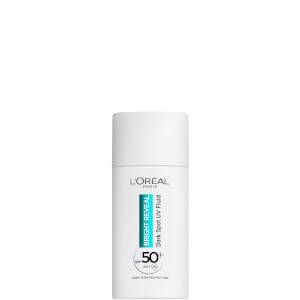
Swatch this formula and you'd be given for thinking it was a moisturiser—a lightweight, watery lotion with a silky finish. It's packed with helpful ingredients like niacinamide to help brighten areas of pigmentation or sun damage too.
4. Bondi Sands Hydra UV Protect SPF50+
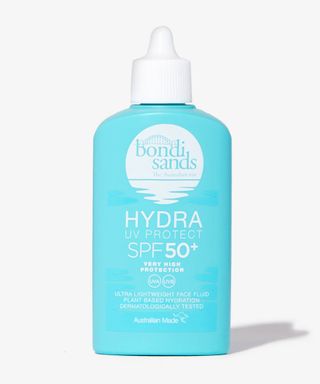
There's one thing that this sunscreen and all of the four above have in common—they're all created by Australian brands—and since Australia has the strictest rules around sunscreen formulation in the world, it means their SPF formulas really are the best of the best. I love how weightless this one is—the serum-like texture absorbs quickly and leaves a great glow.
5. Supergoop! Unseen Sunscreen SPF 30
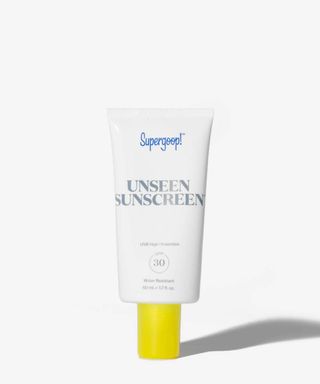
With its totally transparent and jelly-like texture, this is a crowd-pleasing favourite, especially for those who want a 100% invisible finish. The formula itself is packed with silicones, which makes this a great option for wearing under makeup.
6. La Roche-Posay La Roche-Posay Hyalu B5 Aquagel SPF 30
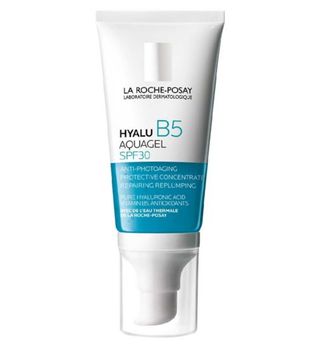
La Roche-Posay have a number of popular sunscreens in their range, but this often over-looked formula is my favourite. The clear gel is boosted with hydrating and antioxidant ingredients—it looks and feels like a serum, but still offers broad spectrum UVA and UVB protection.
7. Isntree Hyaluronic Acid Watery Sun Gel SPF50+
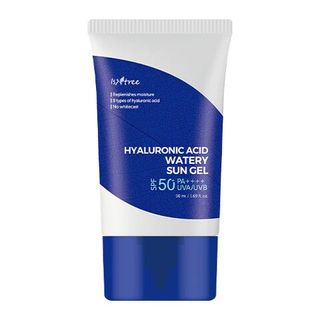
Whenever I wear this sunscreen I get complimented on how glowy my skin is, and consequently have to explain that no, it's not my foundation, highlighter, or primer that are responsible, it's my SPF. So if, like me, you subscribe to the dewy, 'glass skin' look, this K-beauty staple is a must have.
8. Beauty Pie Featherlight SPF 50 + Primer
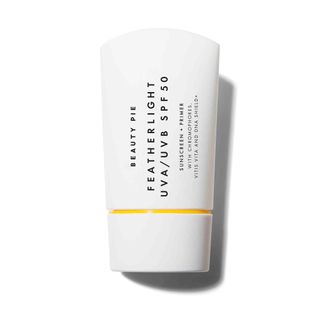
Price shown is member price.
This remains a favourite among the Who What Wear UK beauty team. It's ultra-lightweight, sinking into the skin into an undetectable, non-greasy finish that makes great prep for makeup.
9. Glossier Invisible Shield Daily Sunscreen SPF 30
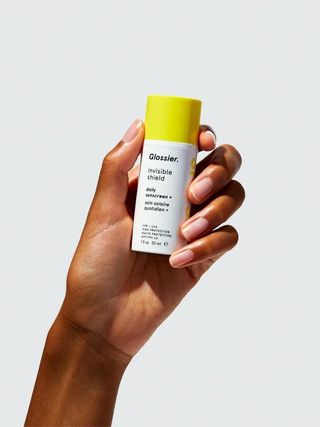
Glossier's SPF is exactly what you'd expect from its name—a transparent gel formula, not unlike the Supergoop one above. This is a chemical formula and totally invisible upon application, so while it's perfect for dark skin tones, you may want to avoid if you have particularly sensitive skin.
10. Skinceuticals Brightening UV Defense SPF 30 Sunscreen Protection
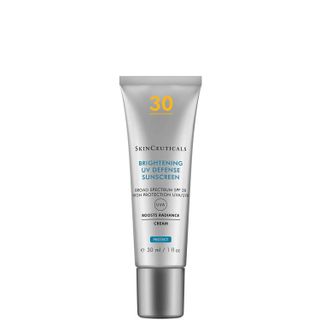
This is a great option for anyone concerned about hyperpigmentation. SPF will help to prevent further damage, but it contains tranexamic acid and niacinamide—two ingredients renowned for their ability to address discolouration. Plus, the thin, lotion texture completely disappears into skin.
11. Supergoop! Glowscreen SPF 30
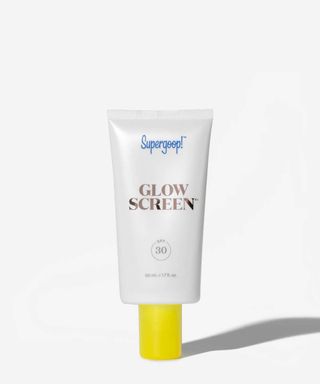
With a subtle pearlescent finish, this is another one for those who like a fresh-faced, glowy look. It's super hydrating and doubles up as a makeup primer, but also works great for makeup-free days thanks to its 'skin-blurring' effect.
12. Bondi Sands Face Mist Sunscreen SPF 50+
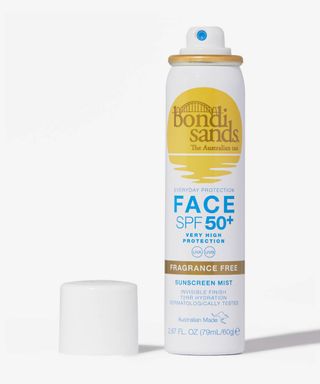
Applying sunscreen in the morning is one thing, but how many of us remember to top it up throughout the day? Granted, it's not always that easy—especially if you're wearing makeup—but fortunately there have been a slew of mist and spray SPFs released in recent years. This one is really fine in texture so won't disturb makeup, no matter how liberally you apply.
13. Zitsticka Megashade Breakout-Proof SPF50 Serum
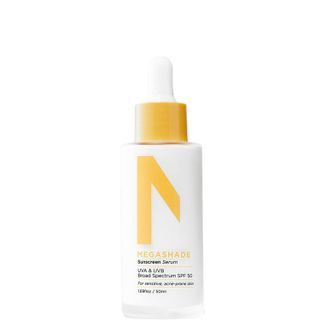
Calling all oily skinned and acne-prone skin types—this SPF was made precisely with you in mind. It's a chemical-mineral hybrid formula, relying on the best of both types of ingredient to ensure the result is a sheer finish and broad spectrum protection that won't look greasy or clog pores.
14. Vichy Capital Soleil UV-Age Daily
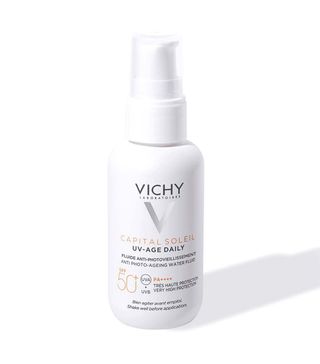
Boosted with probiotics and a skin barrier-protecting technology, this lightweight sunscreen is perfect for dry and dehydrated skin types.
15. La Roche-Posay Anthelios Uvmune 400 Invisible Fluid SPF 50+
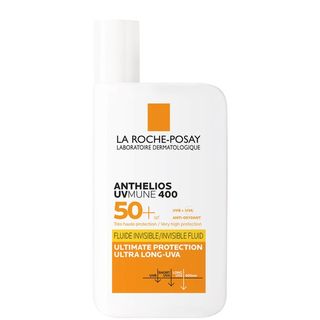
This iconic SPF continues to be a favourite among beauty editors. The non-fragranced formula is lightweight and non-irritating, making it great for those with sensitive or breakout prone skin. It also contains antioxidants to help further shield the skin against the damaging effects of the sun.
16. Ultra Violette Queen Screen Luminising Sun Serum SPF50+
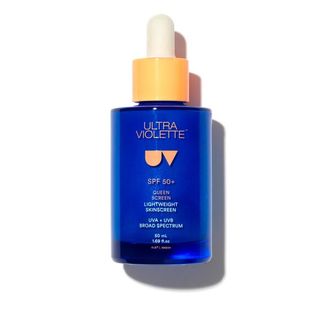
This was the sunscreen that made me realise that SPFs don't have to feel thick and chalky—literally everyone I recommend it to loves it. It has recently been reformulated and it's better than ever. It has a silky serum formula so absorbs quickly and easily, and leaves skin with the most amazing glow.
17. Prof. Dr. Steinkraus Sun Protect SPF 50+
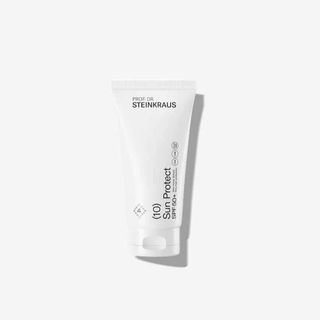
Formulated by the dermatologist behind some of skincare's most iconic products, this is an impressive SPF that combines some of the most innovative new sunscreen ingredients. In addition, it also contains vitamin E, making it an especially good option for dry and mature skin types.
18. Ultra Violette Lean Screen Mineral Mattifying Fragrance-Free Sunscreen SPF 50+
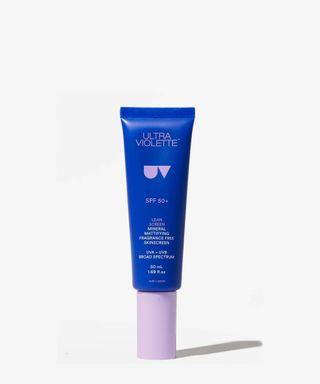
At this point, it's safe to say you've probably realised that Ultra Violette is one of my favourite sunscreen brands. I couldn't not include this option, which is one of the best I've tried for oily skin types. The silky-cream texture melts into skin for a mattifying and skin-blurring effect.
This story was originally published at an earlier date and has since been updated.
Grace Day is a beauty editor and content creator. She has over 10 years of beauty-industry experience, spanning editorial, retail, and e-commerce, which gives her a unique understanding into how people shop for their beauty routines. While studying for a history degree (specialising in the history of beauty) and working as a beauty adviser in department stores, Grace started writing her own beauty blog in order to share the products she discovered while dealing with acne. After graduating, she moved to Beauty Bay as beauty editor and content manager. Grace is currently a beauty contributor to Who What Wear. She has also written for Hypebae and PopSugar and works as a brand consultant and copywriter.
-
 I've Been a Dermatologist for Over 40 Years—18 Products I Trust to Use on My Own Skin
I've Been a Dermatologist for Over 40 Years—18 Products I Trust to Use on My Own SkinDr. Loretta shares her best skincare advice.
By Kaitlyn McLintock
-
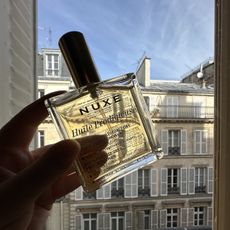 17 Iconic French Pharmacy Products I Picked Up During a Week in Paris
17 Iconic French Pharmacy Products I Picked Up During a Week in ParisI was determined to fit them in my suitcase.
By Kaitlyn McLintock
-
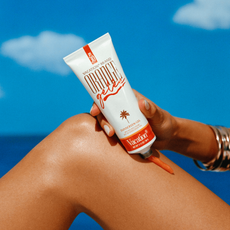 Vacation Brought Back Orange Gelée—Just in Time for a Luxe, French-Girl Summer
Vacation Brought Back Orange Gelée—Just in Time for a Luxe, French-Girl SummerBooking a getaway to St. Tropez stat.
By Marie Lodi
-
 The $8 Face Oil Kendall Jenner Uses to Prep Her Skin for French-Girl Makeup
The $8 Face Oil Kendall Jenner Uses to Prep Her Skin for French-Girl MakeupPlus, her favorite anti-acne face wash.
By Kaitlyn McLintock
-
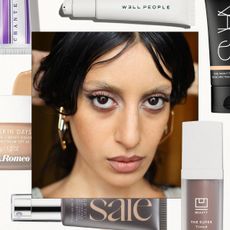 These Undetectable Tinted Moisturizers Actually Meet Our Super-High Standards
These Undetectable Tinted Moisturizers Actually Meet Our Super-High StandardsThey won't let you down.
By Maya Thomas
-
 I'm Heading to NYC for 72 Hours—18 On-Sale Sephora Staples I'm 100% Packing
I'm Heading to NYC for 72 Hours—18 On-Sale Sephora Staples I'm 100% PackingI'm scrambling for these savings.
By Maya Thomas
-
 I Try a Lot of Skincare Devices, But None Give a Lift and Glow Quite Like This One
I Try a Lot of Skincare Devices, But None Give a Lift and Glow Quite Like This OneSeriously, it's worth the investment.
By Shawna Hudson
-
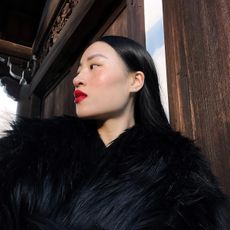 I Tried This Viral K-Beauty Brand After Discovering It on TikTok and Never Looked Back
I Tried This Viral K-Beauty Brand After Discovering It on TikTok and Never Looked BackEverything is so good.
By Shawna Hudson

